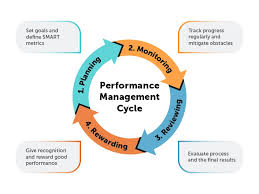The Importance of Effective Management in Today’s Business Environment
Management plays a crucial role in the success of any organisation, serving as the driving force that steers operations towards achieving goals and objectives. In today’s fast-paced and competitive business environment, effective management is more vital than ever.
One key aspect of management is leadership. A good manager not only oversees daily tasks but also inspires and motivates employees to perform at their best. Strong leadership fosters a positive work culture, encourages innovation, and boosts employee morale.
Effective management involves strategic planning to set clear objectives and chart a course for the future. Managers must make informed decisions based on data analysis and market trends to ensure the sustainability and growth of the business.
Communication is another critical component of successful management. Clear and open communication channels within an organisation promote transparency, collaboration, and understanding among team members. Managers who communicate effectively can align their teams towards common goals and resolve conflicts efficiently.
Furthermore, effective management involves efficient resource allocation. Managers must optimise resources such as budget, time, and manpower to maximise productivity and minimise waste. This requires careful planning, monitoring, and adjustment as needed to adapt to changing circumstances.
In conclusion, effective management is essential for navigating the complexities of today’s business landscape. By fostering strong leadership, strategic planning, clear communication, and efficient resource allocation, organisations can position themselves for success and sustainable growth in a competitive market.
“Enhancing Leadership: Strategies for Managers to Develop Their Skills”
“Mastering Team Dynamics: Top Strategies for Successful Management”
4. “Navigating Manager
- What are the key responsibilities of a manager?
- How can I improve my leadership skills as a manager?
- What are the best strategies for effective team management?
- How can I handle conflicts and challenges in a managerial role?
- What are the latest trends and innovations in management practices?
What are the key responsibilities of a manager?
Managers play a pivotal role in organisations by overseeing various aspects of operations and guiding teams towards achieving common goals. Key responsibilities of a manager include setting clear objectives and goals for their team, providing direction and guidance to employees, delegating tasks effectively, monitoring progress, and ensuring that deadlines are met. Managers are also responsible for fostering a positive work environment, resolving conflicts, motivating employees to perform at their best, and promoting professional development. Additionally, managers must communicate with stakeholders, make strategic decisions based on data analysis, manage resources efficiently, and adapt to changing market conditions to ensure the overall success of the organisation.
How can I improve my leadership skills as a manager?
Improving leadership skills as a manager is a common goal for many professionals seeking to enhance their effectiveness in guiding and inspiring their teams. One key strategy to develop leadership skills is through continuous learning and self-reflection. Engaging in leadership training programmes, reading relevant literature, and seeking mentorship from experienced leaders can provide valuable insights and perspectives. Additionally, actively soliciting feedback from team members and peers can help identify areas for improvement and growth. By fostering a growth mindset, embracing challenges, and being open to new ideas, managers can cultivate their leadership capabilities and create a positive impact on their teams and organisations.
What are the best strategies for effective team management?
When it comes to effective team management, implementing the best strategies is crucial for fostering a cohesive and high-performing team. Communication lies at the heart of successful team management, ensuring that goals are clearly defined, roles are understood, and feedback is given regularly. Encouraging collaboration and building a supportive team culture where members feel valued and empowered can enhance productivity and morale. Setting realistic expectations, providing adequate resources, and recognising individual strengths within the team are also key elements in effective team management strategies. By promoting open communication, fostering teamwork, and aligning goals with individual strengths, managers can cultivate a harmonious and efficient work environment conducive to achieving collective success.
How can I handle conflicts and challenges in a managerial role?
In a managerial role, handling conflicts and challenges effectively is a crucial skill that can determine the success of a team and the organisation as a whole. When faced with conflicts, it is essential to approach them with empathy, active listening, and a willingness to understand all perspectives involved. Open communication channels can help address issues early on before they escalate. As a manager, it is important to remain impartial, focus on finding solutions rather than assigning blame, and encourage constructive dialogue among team members. Embracing challenges as opportunities for growth and learning can lead to innovative problem-solving approaches and stronger team cohesion in the long run.
What are the latest trends and innovations in management practices?
In today’s dynamic business landscape, the latest trends and innovations in management practices are shaping the way organisations operate and succeed. From embracing digital transformation and leveraging data analytics to fostering a culture of agility and adaptability, modern management practices are evolving to meet the demands of a rapidly changing world. Leaders are increasingly focusing on employee well-being, diversity and inclusion, and sustainability initiatives to drive long-term success and create a positive impact on society. By staying abreast of emerging trends and adopting innovative approaches, businesses can stay competitive, resilient, and responsive to the ever-evolving challenges of the global marketplace.

